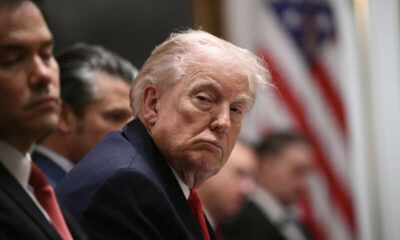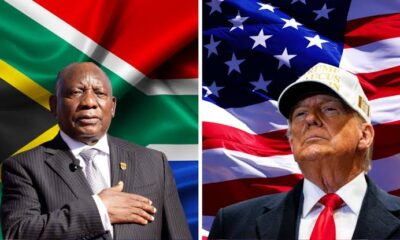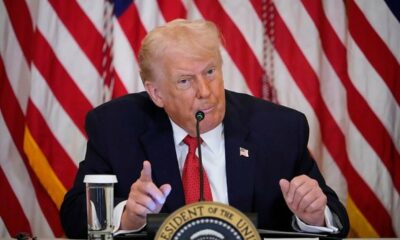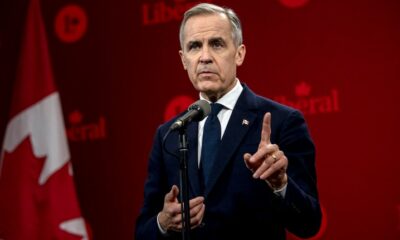News
Ramaphosa Heads to G7 to Keep South Africa in the Global Trade Game
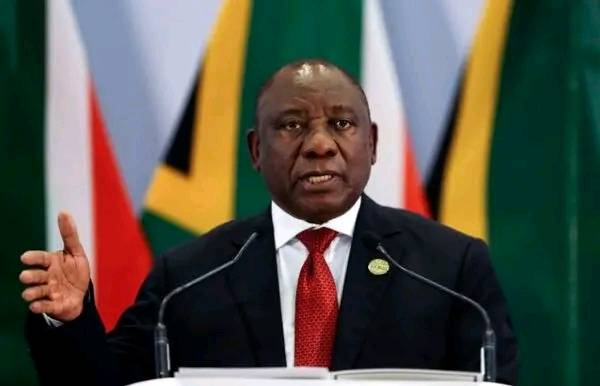
With AGOA’s expiry looming and new tariffs on the table, SA’s president needs more than a handshake from Trump
South African President Cyril Ramaphosa has touched down in Kananaskis, Canada, where he’s preparing for what could be one of the most critical meetings of his presidency, a sit-down with US President Donald Trump on the sidelines of the G7 Summit.
At stake? Billions of rands in trade, food security for millions, and South Africa’s place in the global economic order.
And no, he’s not just there for the photo ops.
Trade, Not Talk, Ramaphosa’s Real Agenda
While the Israel-Iran war is expected to dominate the G7’s closed-door discussions, Ramaphosa is heading into his bilateral with Trump laser-focused on trade. Specifically, he wants clarity on the future of the African Growth and Opportunity Act (AGOA), a key US law that allows duty-free access to American markets for qualifying African exports — including South Africa’s.
The deal expires in September, and so far, Washington hasn’t given firm signals about whether a renewal is on the cards. That’s left local businesses on edge, with many warning that losing AGOA access would hit jobs and exports hard.
Ramaphosa is also expected to challenge Trump’s latest tariff strategy. In April, the US slapped South Africa with import tariffs as part of Trump’s so-called “Liberation Day” trade agenda. Although these duties were eventually lowered to a 10% base rate with a 90-day pause for negotiation, the clock is ticking, and the July deadline is approaching fast.
Lamola Joins the Fight
Joining Ramaphosa is newly appointed Minister of International Relations and Cooperation, Ronald Lamola. His presence sends a clear message: Pretoria is treating this as more than a symbolic appearance. It’s a strategic mission to protect South Africa’s trade ties with the world’s largest economy.
Speaking ahead of the summit, Presidency spokesperson Vincent Magwenya framed the trip as a chance to boost both bilateral and multilateral relationships. But behind the diplomatic language lies a growing pressure from back home.
Business Pressure Mounts
South Africa’s private sector has been watching these developments nervously. Several industry leaders have urged the president to secure more than vague promises from Trump. With global supply chains still shaky and the local economy underperforming, any increase in tariffs could be a hard blow.
Ramaphosa already had a pre-summit meeting with Canadian G7 President Mark Carney, where they discussed economic stability, trade and peace. But it’s the Trump meeting that carries the most weight, especially since Washington is seen as increasingly transactional in its global dealings.
Bird Flu & Chicken: The Deal Behind the Headlines
While much of the focus is on AGOA and tariffs, one quietly impactful agreement is already showing results. South Africa’s Department of Agriculture recently struck a deal with the US to allow for more flexible chicken imports in the face of bird flu outbreaks.
Instead of banning all poultry from the US, the agreement limits restrictions only to the affected regions — a model known as regionalisation. It’s not just bureaucratic jargon: this could ensure continued access to affordable chicken, a staple protein for millions of lower-income South Africans.
“This is a sensible approach,” said Georg Southey of Merlog Foods, one of the country’s top importers. “It should be replicated with all trusted trading partners.”
In a country where food inflation has hit poor communities hardest, the move is being quietly welcomed by consumers and the food industry alike.
What’s at Risk?
If AGOA lapses or tariffs rise, South Africa’s export-driven sectors, from agriculture to manufacturing could suffer. And while gold and mining shares may be booming on the JSE, the reality on the ground is less glittery.
Add to this the political tensions created by South Africa’s BRICS membership, especially given Iran’s recent inclusion and Washington’s support for Israel — and it’s clear Ramaphosa will have to tread carefully. Sources close to the presidency suggest the president may avoid discussing Middle East tensions with Trump entirely, in an effort to keep trade talks on track.
A Defining Diplomatic Moment
This G7 trip may not make headlines in every household, but its outcomes will ripple through the South African economy. From the price of groceries to the survival of export jobs, the stakes are real.
Ramaphosa’s challenge is clear: secure continued access to American markets, avoid a tariff war, and keep trade flowing — all while maintaining South Africa’s position as a non-aligned global player in an increasingly divided world.
He won’t get many chances like this again.
Public Sentiment on X (formerly Twitter):
“Ramaphosa must come back with more than handshakes and photos. Jobs are on the line.” – @Bozza_BizSA
“AGOA has helped so many local exporters stay afloat. We need that extension.” – @Msizi_TradeTalk
“If we lose duty-free access to US markets, expect higher prices and fewer jobs. No pressure, Mr President.” – @Lesego_Econ
Key Facts at a Glance:
-
AGOA set to expire in September 2025
-
US tariffs on SA imports currently at 10%, pending further negotiation
-
Ramaphosa will meet President Trump and Chancellor Merz
-
Avian flu deal with US allows regional import bans instead of full country bans
-
G7 Outreach session focuses on energy, tech, minerals, and infrastructure
{Source: IOL}
Follow Joburg ETC on Facebook, Twitter , TikTok and Instagram
For more News in Johannesburg, visit joburgetc.com

